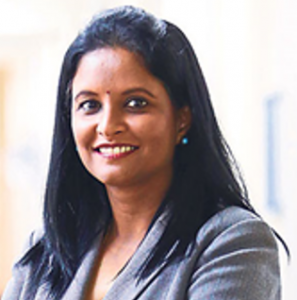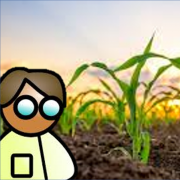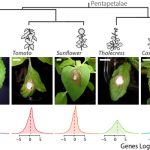Informational interview with Dr. Mahaletchumy Arujanan, Global Coordinator of the International Service for the Acquisition of Agri-biotech Applications (ISAAA)
Informational Interview by Godwin James, ASPB Conviron Scholar
 I had a great opportunity to interview Dr. Mahaletchumy Arujanan and listen to her passion for science communication. Dr. Maha Arujanan is the global coordinator of the International Service for the Acquisition of Agri-biotech Applications (ISAAA) and also the executive director of the Malaysian Biotechnology Information Centre (MABIC). Dr. Arujanan holds a doctorate degree in science communication and a master’s in biotechnology. She is the founder and editor-in-chief for The Petri Dish, Malaysia’s first science newspaper. She also works to advance, and support women pursuing degrees and careers in STEM and frequently speaks at schools and community events to encourage young people to chase their dreams and unlock their potential. She was listed as one of the 100 most influential people in the field of biotechnology by the 7th edition of The Scientific American Worldwide View: A Global Biotechnology Perspective Journal.
I had a great opportunity to interview Dr. Mahaletchumy Arujanan and listen to her passion for science communication. Dr. Maha Arujanan is the global coordinator of the International Service for the Acquisition of Agri-biotech Applications (ISAAA) and also the executive director of the Malaysian Biotechnology Information Centre (MABIC). Dr. Arujanan holds a doctorate degree in science communication and a master’s in biotechnology. She is the founder and editor-in-chief for The Petri Dish, Malaysia’s first science newspaper. She also works to advance, and support women pursuing degrees and careers in STEM and frequently speaks at schools and community events to encourage young people to chase their dreams and unlock their potential. She was listed as one of the 100 most influential people in the field of biotechnology by the 7th edition of The Scientific American Worldwide View: A Global Biotechnology Perspective Journal.
Snippets from the interview
- Maha really likes her job because it’s non-routine. Every day she gets to talk to different stakeholders, which means you talk about language, different styles, developing different messages that can resonate with different stakeholders.
- Scientists are obligated to communicate their research to increase the public understanding of science mainly because we use taxpayers money and they should understand how it benefits the country or the global society.
- Communicating science is not just about communicating the science of the technology, but also talking about policies, regulations, ethics and religion and many other things that that influence the decision making.
- Firstly, Scientists need to make sure that they gain the trust of the public. This will obviously promote research products to get commercialized or get to the farm or get to the market.
- A child will only say, I want to be a scientist only if the child gets to see a scientist and know what they’re doing.
- We want science to become a culture for everyone and start talking about science, not just about politics, entertainment and sports.
- First level of training to become a science communicator is by start communicating on social media, talking to your circle, your family, your friends and your relatives.
Twitter: @maha_mabic







